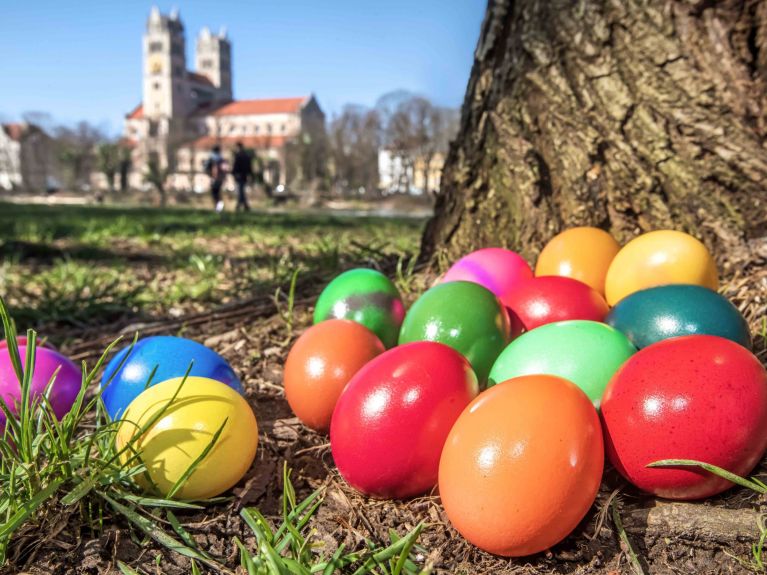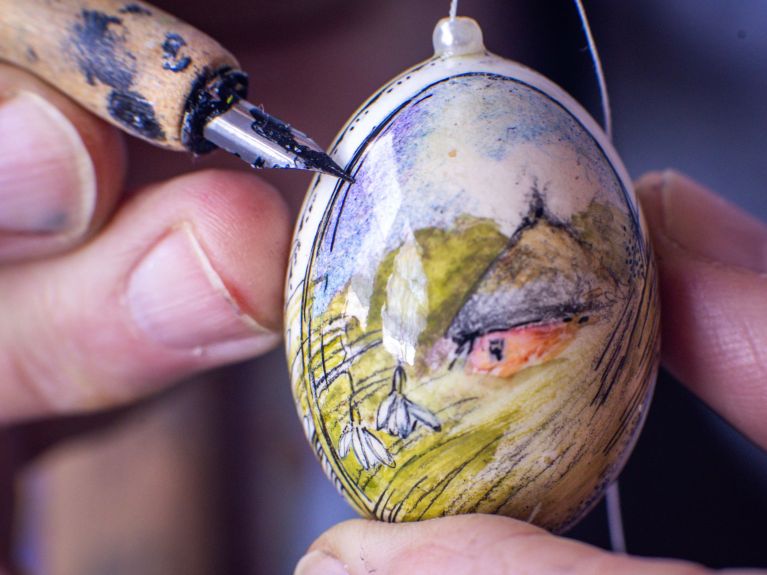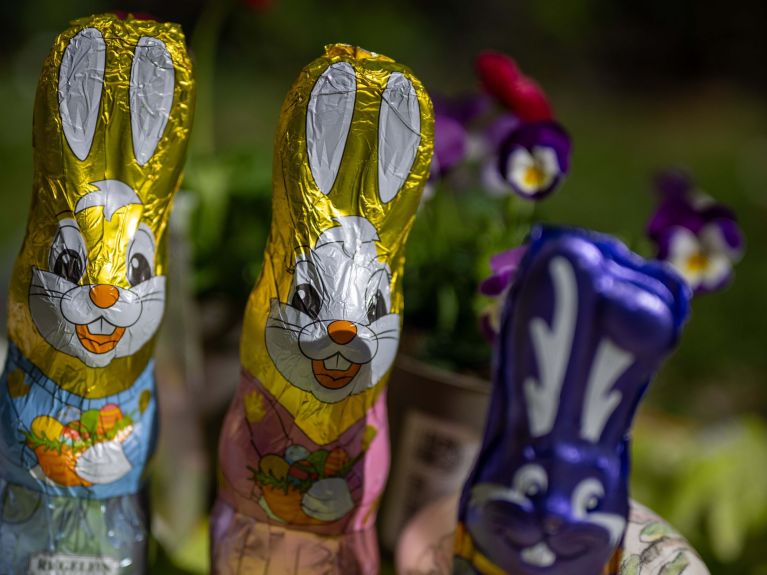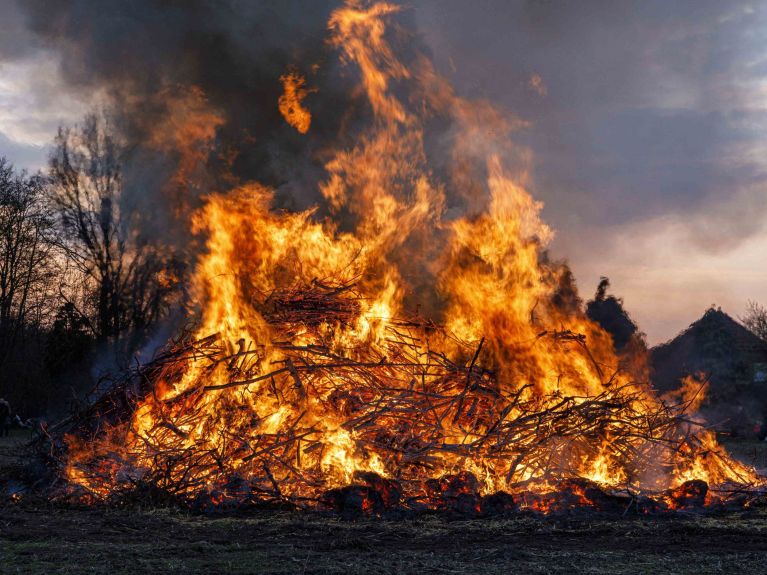Easter bunnies and colourful eggs: where the Easter traditions originate
Easter is the most important Christian festival. Find out more about how it is celebrated these days in Germany.

When Germans celebrate Easter, Easter eggs and Easter bunnies are a must. Especially in families with small children, eggs painted in bright colours and chocolate bunnies are an important part of the festival. But where did these traditions originate? How important is the festival in Germany? And on which days do the celebrations take place? We answer the key questions about the Easter festival.
What is celebrated at Easter?
At Easter, Christians celebrate the resurrection of Jesus Christ. According to the Christian faith, Jesus was crucified on Good Friday and rose from the dead on Easter Sunday. For Christians, Easter is the most important festival of the year - even more important than Christmas. Nonetheless, Christmas in December is celebrated much more lavishly in Germany.
When is Easter celebrated?
Unlike Christmas, which sees Christmas Eve celebrated on 24 December, followed by Christmas Day and Boxing Day on 25 and 26 December, Easter takes place on a different date each year. According to church tradition, the festival is held on the first Sunday following the first full moon after the beginning of spring. Because spring begins on 21 March in the church calendar, Easter always falls between 22 March and 25 April.
Why does Easter involve Easter eggs?

Brightly painted eggs are an integral part of the Easter festival. In many families, it is traditional on Easter Sunday for the children to hunt for eggs that have been hidden in the garden or inside the home. For centuries, a cold egg - traditionally dyed red - has been a symbol of the resurrection of Jesus Christ in Christianity. These days, Easter eggs are no longer only red, but are painted in all kinds of different colours, often very artistically.
Why does the Easter bunny hide the Easter eggs?

Rabbits have been a symbol of fertility for centuries. It is not entirely clear why legend has it that the Easter eggs are brought by a bunny. In some regions, other animals such as a cuckoo, stork or fox are said to hide the eggs. Nowadays, however, Easter bunnies are everywhere - supermarket shelves are full of chocolate bunnies even many weeks before Easter. Every year, more than 200 million chocolate bunnies are produced in Germany.
What is the significance of the Easter lamb?
The lamb is one of the best-known Christian symbols at Easter. With its white coat, it has been a sacrificial animal for centuries. In Christianity, the lamb symbolises the death of Jesus Christ on the cross and his resurrection.
Which other Easter traditions are there in Germany?

In many regions, an Easter fire is one of the traditional customs. Even centuries ago spring would be welcomed with a fire, and later Easter fires became traditional in Christianity. In many cases, Easter candles are also lit using the Easter fire and carried into a dark church.
Are shops closed over Easter?
Good Friday, Easter Sunday and Easter Monday are public holidays in Germany. With just a few exceptions, shops and supermarkets are closed on public holidays. Shops are open on Easter Saturday, however.


